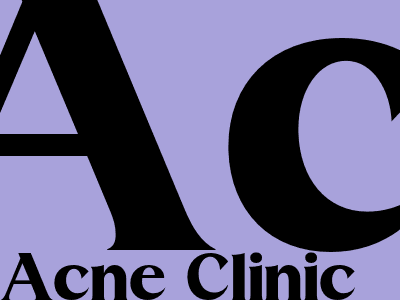
```html
Acne Clinic: A Comprehensive Guide to Treating Acne
What is Acne?
Acne is a common skin condition that affects people of all ages. It is caused by the overproduction of sebum, a natural oil that helps to keep the skin moist. When sebum clogs the pores, bacteria can grow and cause inflammation, leading to the formation of pimples, blackheads, and whiteheads.
Types of Acne
There are several different types of acne, including:
- Mild acne: This type of acne is characterized by a few pimples or blackheads that may come and go.
- Moderate acne: This type of acne is more severe than mild acne and may include more pimples, blackheads, and whiteheads. It can also cause some scarring.
- Severe acne: This type of acne is the most severe form of acne and can cause deep, painful cysts that can lead to scarring.
Causes of Acne
The exact cause of acne is not fully understood, but it is thought to be caused by a combination of factors, including:
- Hormonal changes: Acne is often triggered by hormonal changes that occur during puberty, pregnancy, and menopause.
- Genetics: Acne tends to run in families, suggesting that there may be a genetic component to the condition.
- Diet: Some studies have shown that eating a diet high in sugary foods and dairy products can worsen acne.
- Medications: Certain medications, such as corticosteroids and birth control pills, can cause acne as a side effect.
Treating Acne
There are a variety of treatments available for acne, including:
- Topical medications: These medications are applied directly to the skin and can help to kill bacteria, reduce inflammation, and unclog pores.
- Oral medications: These medications are taken by mouth and can help to reduce the production of sebum and hormones that can trigger acne.
- Laser therapy: Laser therapy can help to kill bacteria and reduce inflammation, leading to improved acne symptoms.
- Light therapy: Light therapy can help to kill bacteria and reduce inflammation, leading to improved acne symptoms.
Preventing Acne
There are a number of things you can do to help prevent acne, including:
- Wash your face twice a day: Washing your face twice a day with a gentle cleanser can help to remove dirt, oil, and bacteria from the skin.
- Use a non-comedogenic moisturizer: A non-comedogenic moisturizer will not clog pores and can help to keep the skin hydrated.
- Avoid touching your face: Touching your face can transfer bacteria to the skin, which can lead to acne.
- Eat a healthy diet: Eating a healthy diet that is low in sugary foods and dairy products can help to reduce acne.
- Get regular exercise: Regular exercise can help to reduce stress, which can trigger acne.
When to See a Doctor
If you have acne that is severe or does not respond to over-the-counter treatments, you should see a doctor. A doctor can prescribe stronger medications and recommend other treatments that can help to improve your acne.
```